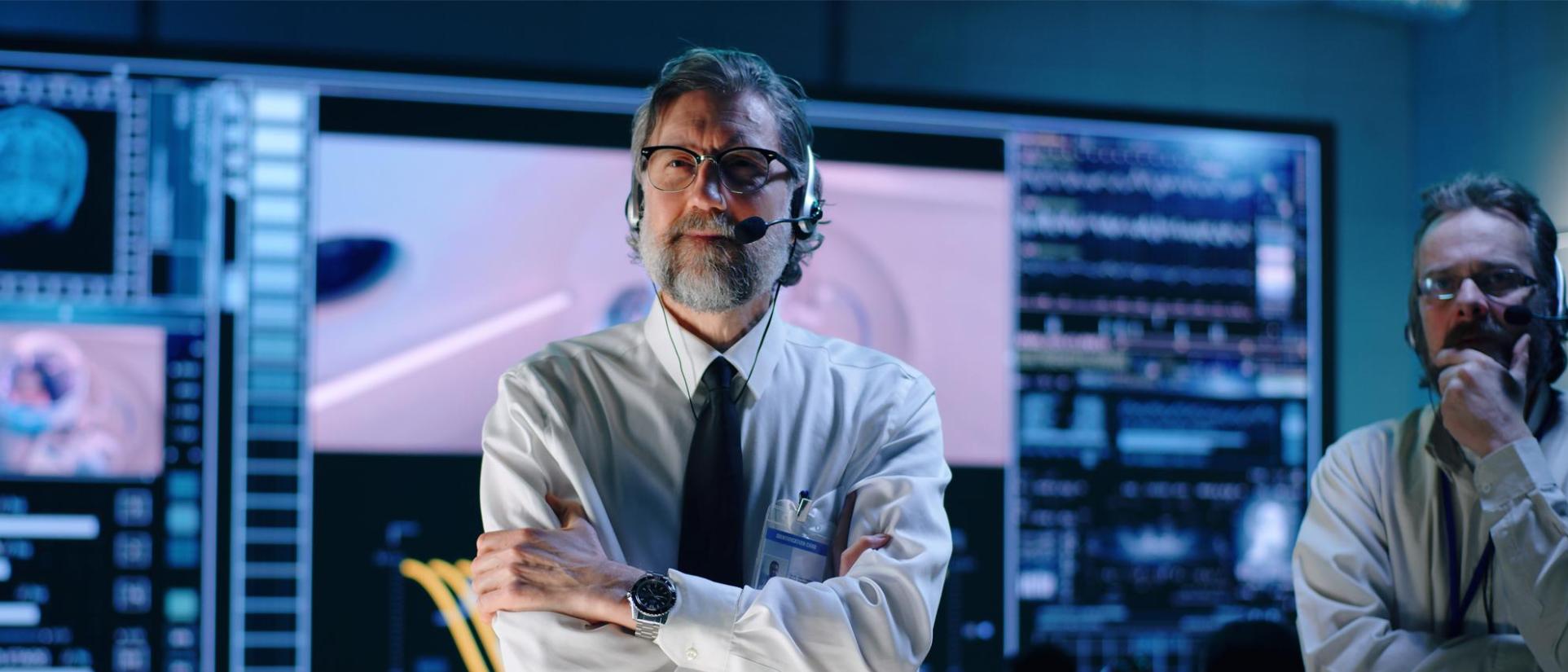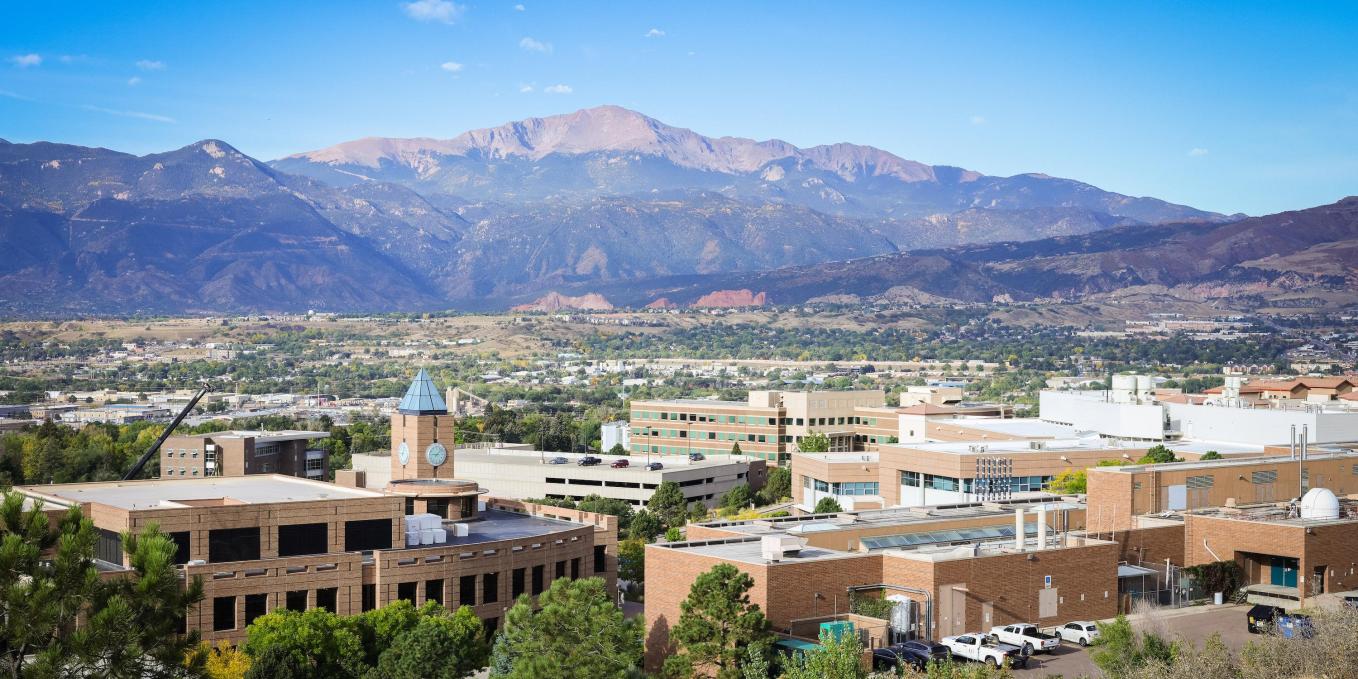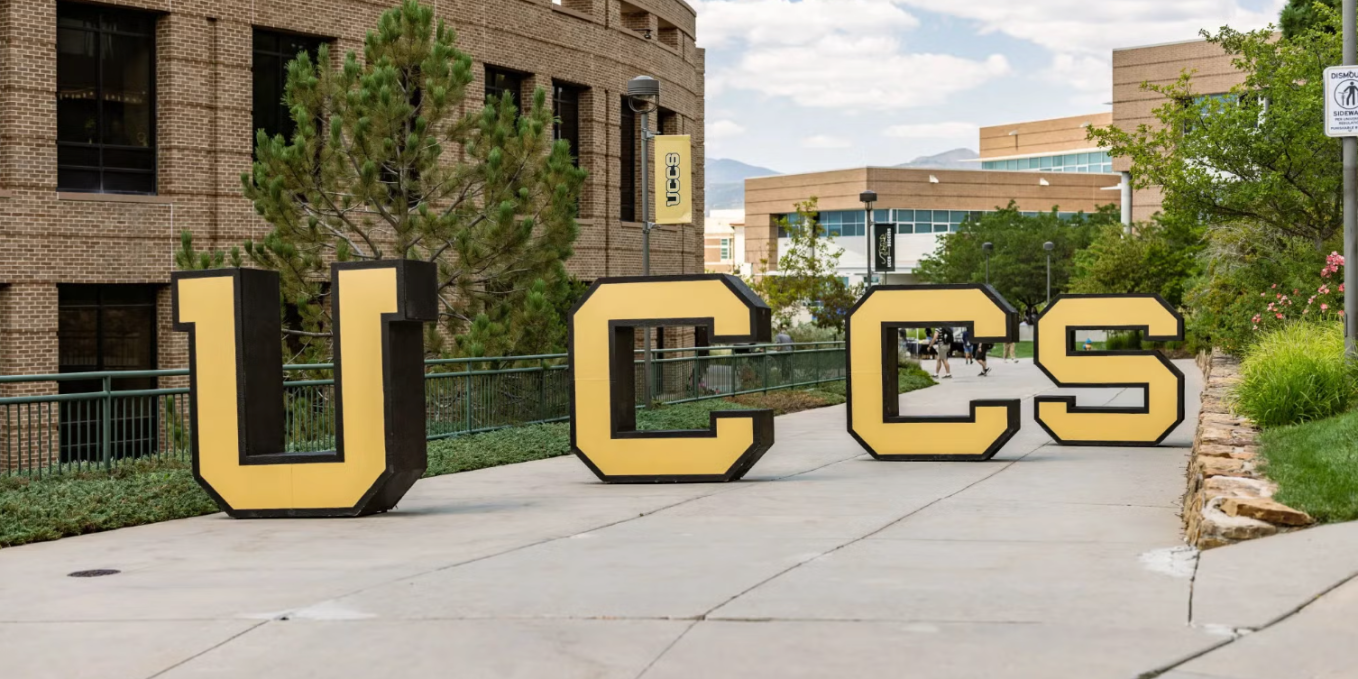
Space Operations Graduate Certificate
Request Information
Space Operations Course Overview
Elevate your career in the aerospace industry with a short-term learning opportunity from UCCS.
The online Space Operations Graduate Certificate enhances your knowledge and skills in astronautics, space policy, space communications, remote sensing, and systems engineering. This program is a practical way for space professionals to build on their professional foundation for current employment or future opportunities.
This program is offered fully online with no on-campus requirements and can be completed in just one year. Unlock opportunities to advance your career in aerospace in small classes with an 11:1 student-to-faculty ratio.
Coursework in this certificate program can be applied toward the Master of Engineering – Space Operations degree should you choose to continue your education.
-
Offered byCollege of Engineering and Applied Science
-
Format100% OnlineDelivery
-
Cost Per Credit$900**Approximate In-state
-
Cost Per Credit$1053**Approximate Out-of-state
-
Application DeadlineJuly 1, 2026Priority Application Deadline
-
Rolling AdmissionsRolling AdmissionsApplication Deadline
-
Credit Hours15Credit Hours
-
Time To Completion1.5 YearsAverage Completion Time
Space Operations Course Overview
The Space Operations Graduate Certificate is offered fully online in an asynchronous format, meaning there are no set login times, and you can complete your coursework at the time and place most convenient for you. Course lengths vary, with both eight-week and 16-week courses offered, and you can choose the pace of the program that works best for you.
Students will learn through prerecorded lectures, group projects, individual papers, portfolios based on weekly case studies, and more. Live office hours via Zoom and Teams are also available to students in the program.
In order to complete the certificate, a grade of B or better in each course must be achieved. The following required certificate courses must be completed within two (2) years from start of courses.
-
Introduces the fundamental principles of astrodynamics applied to satellite motion. Includes orbital mechanics, coordinate systems, two-body problems, orbit determination, and orbital maneuvers.
-
Fundamentals of digital data transmission; noise characterizations and calculations; communications link calculations; error probabilities for basic digital modulations schemes - BPSK, QPSK, OQPSK, MSK, serial MSK; system degradations, carrier and clock recovery; multiple access techniques - FDMA, TDMA, CDMA; packet satellite networks; “orbital” parameters; comparison of satellite communication systems with fiber optic links.
-
Introduction to the fundamental technologies associated with various remote sensing techniques: optical, infrared, microwave, and nuclear sensors and imaging systems. Background effects and effects of propagation through the atmosphere are included as well as tradeoffs of systems and platform capabilities.
-
An overview of space policies and strategies, both domestic and international. The course provides students with a perspective of how these policies and strategies have evolved over time. Emphasis will be on understanding current national security strategy, military space-related doctrines, domestic laws and policies, and international laws, treaties, and agreements.
-
Focus on the systems engineering life cycle process and the derivation of engineering/technical requirements from customer/operational requirements. Analytical tools which support fielding of effective systems consistent with developed requirements will be covered. Major emphasis is placed on systems reliability and life-cycle costing.
Meet the College of Engineering and Applied Science Faculty
- Dr. Julie Albertson, Senior Instructor (Mechanical and Aerospace Engineering), has more than 25 years of experience teaching engineering courses, both on campus and online. She has developed courses in Biomass Energy Analysis, Sustainable Energy Systems, and Engineering Ethics.
- Dr. Ronnie R. Schilling IV, Lecturer, has extensive experience both as an engineer working in technology development, missile defense engineering and testing, and as an instructor in Engineering Management and Systems Engineering.
- Prof. Edward Brown, Lecturer (Space Operations), has over 20 years of experience in the space industry as a GPS mission planner and Space Shuttle flight controller and navigation analyst. He developed and taught technical training courses to U.S. Air Force satellite operations teams. Brown has taught courses within the Space Operations program since 2011.
- See a full list of faculty members.


Complete the form on this page to receive more information about the program.
Tuition and Fees
At UCCS Online, we strive to keep our tuition costs affordable so that you can get a world-class education that fits your budget. We know that affordability is an important factor, and that’s why we’re here to help you explore all of the options available to fund your education.
We’re here to answer your questions about tuition, help you take care of the logistics, and make sure you’re able to focus on reaching your goals. Please note: This graduate certificate program is considered a “Course of Study Certificate” and not a Gainful Employment (GE) program, which means it is not eligible for aid.
Application fees can vary based on the program, but there is typically a small fee that will be required upon submission of your application. Please reach out to an Enrollment Navigator for more information about any costs associated with your application.
Complete the form on this page to connect with our Enrollment Navigator and get more information about tuition, fees, and more.
In State Cost Per Credit:
In State Cost Per Credit:
$900
Approximate tuition per credit hour based on the number of credits taken
Out of State Cost Per Credit:
Out of State Cost Per Credit:
$1,053
Approximate tuition per credit hour based on the number of credits taken
Admissions
Admissions requirements for the Space Operations Graduate Certificate are as follows:
- Application and $60 application fee.
- Resume
- Bachelor of Science degree in engineering or a closely related science discipline from an accredited university.
- Evidence of mathematical maturity equivalent to completion of the following university-level coursework:
- Calculus I
- Linear Algebra
- Physics I (calculus-based)
- Two years of experience in industrial, civil, or government engineering or a technical professional position in a related field is preferred.
An applicant who lacks one or more of the above requirements may be admitted on a provisional basis subject to the recommendations of the Master of Engineering Graduate Committee and approval by the UCCS Graduate School.
Start the application process by filling out the form on this page.
-
UCCS accepts applications throughout the year through a rolling admissions process. However, submitting your application by the preferred deadlines is advisable.
Our stated application deadlines are as follows, but we admit students up to a week before the semester starts.
- Spring 2026: January 20
- Summer 2026: June 15
- Fall 2026: August 24
- Spring 2027: January 19
- Summer 2027: June 14
- Fall 2027: August 23
-
- Summer 2025– June 9, 2025
- Fall 2025 – August 25, 2025
- Spring 2026 – January 20, 2026
- Summer 2026 – June 15, 2026
- Fall 2026 – August 24, 2026
- Spring 2027 – January 19, 2027

Earn an education that creates opportunity. Start the admissions process with an enrollment navigator by filling out the form on this page today.
Frequently Asked Questions (FAQs)
-
The certificate program is an excellent first step toward the Master of Engineering – Space Operations program, as all courses can be applied toward the master’s degree if you choose to continue your education. The certificate also helps you gain a unique professional credential to boost your career and build upon your education and experience while you continue your full-time job.
-
Online learning will offer you the flexibility to study at the best place and time for you. You can choose a pace that is sustainable for your lifestyle, which can help you take into account your current career, family, and other commitments outside of school.
Additionally, at UCCS Online, our online programs are taught by the same faculty who teach on campus, which means you’re earning the same high quality degree as traditional students, and your certificate will not mention that it was earned online.
-
Students are advised to be able to plan for 9-12 hours per week per every three credit hours enrolled for course-related tasks, such as lectures, homework assignments, outside reading requirements, etc. We impress on them the importance of setting a course schedule for themselves to follow as online courses can give the impression of being less structured than sitting in a classroom each week.
-
One of the common challenges students have in the program is needing to utilize knowledge gained during their undergraduate program – knowledge they may not have used often in their professional careers, like mathematics. You may want to revisit your previous subjects during the certificate program.
The required prerequisite knowledge for this program is a bachelor’s degree in engineering, mathematics, physics or a closely related field from an accredited university and two years of experience working in a related field.
Students must also show evidence of mathematical maturity equivalent to completion of the following university-level coursework:
- Calculus I
- Linear Algebra
- Physics I (calculus-based)

UCCS Online is a pioneer in distance education. Since offering our first online course in 1996, we have grown to provide the people of Colorado and the United States with high-quality, engaging online degrees and certificate programs. Now it is your turn to discover what you can accomplish when you earn your degree from UCCS Online.
Your goals matter. Call Clawdia, our student‑focused AI Admissions Recruiter, for personalized guidance on online programming. (719) 428-2135